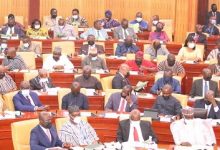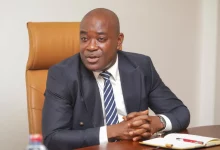On September 24, last year, the College of Education Teachers Association (CETAG) signed a Memorandum of Understanding (MOU) with the Government concerning the conditions of service of its members, with particular reference to the period 2017 to 2020.
Among other issues in the MoU, the state employer promised to pay a nine-month arrears owed the teachers over a three-month period spanning October to December 2021.
On December 12 the leadership of the CETAG indicated that the state employer or the government had not fulfilled its promise to pay the arrears as scheduled and that if by December31, the government had not made good its promise, CETAG members would begin a nationwide strike on January 6, 2022.
True to their word, CETAG members on January 5 declared their indefinite strike before the government said it would meet CETAG on January 10.
The University Teachers Association of Ghana (UTAG) too has declared an indefinite strikewith effect from yesterday and the association says in a communique issued after its emergency meeting on January 7 that the strike was in response to “the worsening conditions of service of the university teacher and the failure of the employer in addressing the plight of UTAG members within the agreed timelines.
All the UTAG members across its 15 branches have withdrawn teaching and related activities until further notice.
It is a pity that the two associations of teacher institutions of higher learning would embark on industrial actions at the same time and at a time a new academic year has just begun.
Obviously, these teachers have chosen to undertake their actions in the hope of getting the maximum attention if the government truly cares about education as it always touts its achievement in the sector.
As things stand now, it is difficult to blame one party or another but it seems the government and its state officials do not take the teachers seriously.
Bureaucracy can delay state processes but the truth is that it is public officials that run the system.
The question is, “Do these officials regard reality and the plight of those they have to serve?”
Is it not sad, for example, that while the CETAG is talking about conditions of service of its members, with particular reference to the period 2017 to 2020, technically a four-year space, the UTAG is also asking the government to restore its members to the 2013 IMP of 114 per cent of Basic Salary in the interim while it goes ahead to formulate guidelines to implement the appropriate recommendations to address the condition of service of the university teacher.
For how long should the teachers wait for their grievances to be addressed?
If truly education is key to national development, then those who make that key function should not be denied their due.
It is not in doubt that no state on this earth can meet the insatiable demands of its workers but, at least, they must be given the little and in good time to ameliorate their ever worsening conditions.
One wonders why state officials always wait for the avoidable to happen before they adopt a fire-fighting approach to address the situation by which time some harm would have been done already.
Both the universities and the colleges of education have reopened for the new academic year, which means there are fresh men and if the government does not do the needful and urgently, these first-year students would suffer more than the continuing ones.
These are students who have not yet been initiated into the system for them to know what areas to look at in the absence of lectures.
The Ghanaian Times, therefore, appeals to the striking teachers to soften their stand in the interest of students, parents and the good of society and accept dialogue as the way forward.




